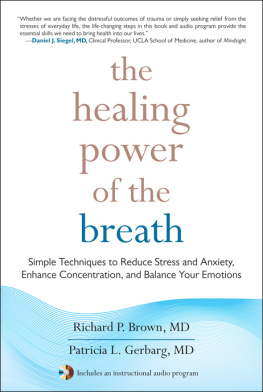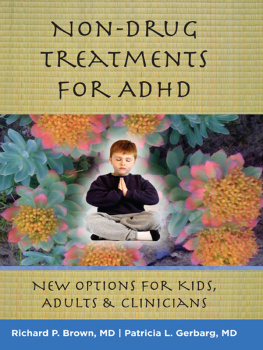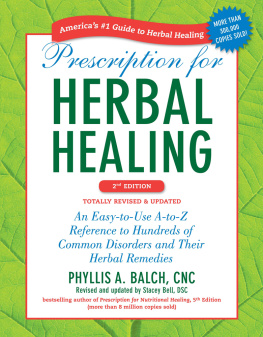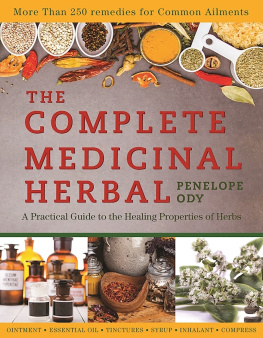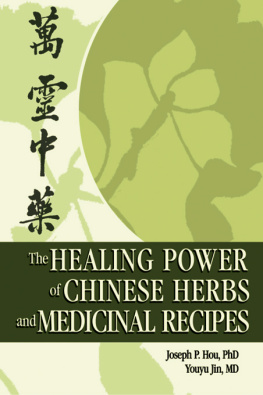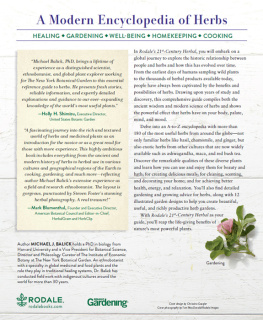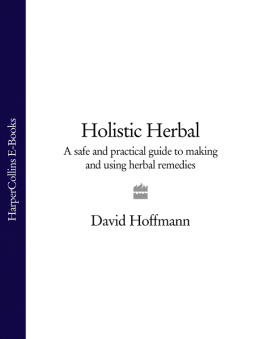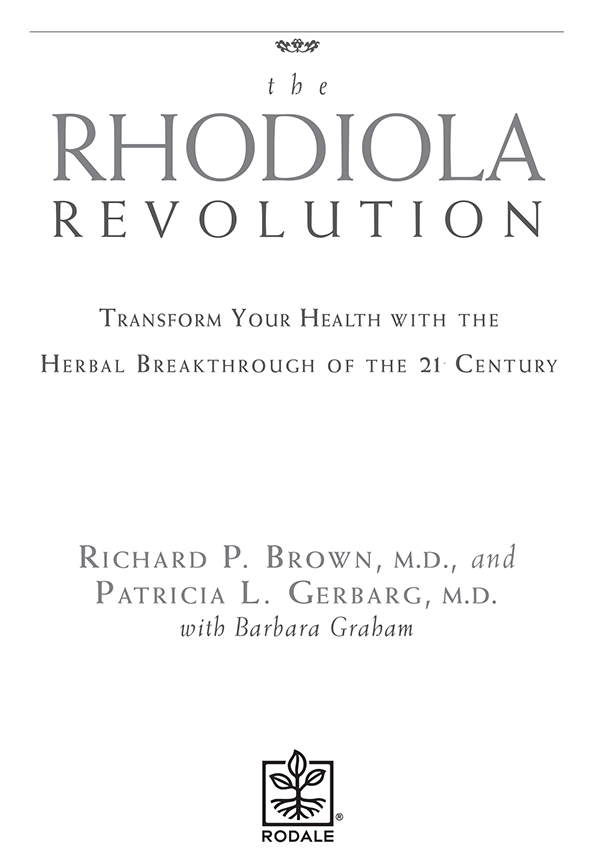
I N L OVING M EMORY OF O UR P ARENTS
Dr. David S. Gerbarg
Colonel Gerhard Brown
Marie Brown
T O THE P ARENTS W HO A RE S TILL WITH U S
Dorothy Gerbarg-Barzin
Richard Barzin
T O O UR W ONDERFUL C HILDREN
Laura, Joshua, and David
T O THE W ISDOM OF O UR T EACHERS
Sri Sri Ravi Shankar
Sensei Imaizumi

C ONTENTS

F OREWORD
T his book is a most welcome addition to the growing body of literature on herbs and phytomedicines. In the past few decades, interest in herbs and phytomedicinal products has grown, not only in the United States but also throughout the world. In recent years, some of this interest has focused on Rhodiola rosea.
All too often, when consumers and health professionals think about herbs, the ones that come to mind are the most popular in the marketplacewhat I sometimes endearingly refer to as the usual suspects. These include aloe vera, black cohosh, echinacea, garlic, ginger, ginkgo, ginseng, saw palmetto, St. Johns wort, and valerian, among numerous others. Most of these herbs have achieved their prominence in the marketplace because they have been the subjects of the most clinical research.
The past 10 to 20 years have witnessed an explosion in the scientific study of herbal formulations. Until very recently, much of this research took place in western Europeparticularly in Germany, where a unique regulatory system evaluates the safety and indications of herbs sold in pharmacies, approving about 200 of them as nonprescription medicines. Other countries involved in extensive herbal research include China, Japan, India, and Russia. Very few of the studies from Russia and the former Soviet Union had been available in the West because they had not been translated into English, the predominant international language of science and medicine.
This is one of the major reasons why the West has remained largely unaware of the increasingly impressive health benefits of Rhodiola rosea, sometimes called Arctic root or golden root. Most of the research occurred in Russia and appeared in Russian medical journals. The data from many of these studies have been under wraps until recently, when they began to appear in limited venues.
At least three modern, well-designed, controlled clinical trials on the adaptogenic properties of Rhodiola rosea have been published in Phytomedicine, a leading English-language journal on the science of herbs and medicinal plants. The results of these trials strongly support the safety and efficacy of Rhodiola rosea. Unfortunately, such trials need to appear in leading medical journals before the conventional medical community will take notice of the potential applications of Rhodiola rosea in modern clinical practice. Publication in major medical journals also could increase media coverage of herbs like Rhodiola rosea and thus promote their inclusion in a rational regimen of dietary supplementation for millions of consumers who are looking for ways to increase energy, reduce stress, and optimize their well-being.
Fortunately, the literature documenting the health benefits of Rhodiola rosea has been comprehensively and painstakingly reviewed by two medical experts who are able to present a clear, cogent, and concise case for the appropriate incorporation of Rhodiola rosea into both medical practice and consumer self-care. I first met Dr. Dick Brown and Dr. Pat Gerbarg over the Internet, via a series of e-mails. They had prepared an extensive monograph on Rhodiola rosea for the American Botanical Councils peer-reviewed herbal medicine journal HerbalGram (http://abc.herbalgram.org/site/PageServer), of which I am the editor. Over the ensuing months, I worked with them to develop the manuscript into what became the first authoritative and comprehensive English-language review of the clinical and pharmacological literature about this fascinating herb.
Normally, I am not one to hype the next superherb. Too often, the U.S. herb market has been characterized by sharp peaks in interest based on the introduction of a new herb or the latest miracle discovery. (This market dynamic also is true for nonherbal dietary supplements.) But when I was interviewed for a one-page story that appeared in the February 3, 2003, issue of Newsweek magazine, I did say that Rhodiola rosea might become the next herbal superstar. I continue to believe this, for several reasons.
First and foremost, the herb is extremely safe. Based on centuries of usegoing back almost 2,000 years to its documented tradition as a remedy in classic Greek medicineplus numerous animal and human clinical studies, Rhodiola rosea has demonstrated a high degree of safety. It is not known to produce any serious adverse effects and few, if any, minor side effects.
Second, as this book clearly demonstrates, Rhodiola rosea has a wide array of documented health benefits, from its established role in building energy and stamina to its potential in helping stabilize depressive moods. The research to support each benefit has been carefully detailed by Dr. Brown and Dr. Gerbarg.
Third, an impressive body of scientific literature supports the traditional and modern applications of Rhodiola rosea. Often scientists and health professionals are not satisfied with the level of clinical research on many herbsand, in general, I tend to agree with them. That is, I would prefer to see much more research on most herbs. But with regard to Rhodiola rosea, the published studies so far show the herb to be useful for physical and mental performance under stress, energy enhancement, heart health, immune defense, hormone balance, and weight loss.
Finally, Rhodiola rosea is agriculturally sustainable. There is a growing sense of urgency among environmental biologists and other scientists in similar fields, as well as among responsible members of the herbal industry, that the continued worldwide demand for herbal medicines could have a deleterious impact on native plant populations. This legitimate concern is particularly relevant to herbs like Rhodiola rosea, whose desired medicinal part is the root. To harvest the root, the entire plant must be destroyed. Fortunately, forward-thinking farmers and entrepreneurs in various parts of Russia, some former Soviet republics, and Scandinavia are developing commercial Rhodiola rosea farms, where they can cultivate high-quality root material without putting further pressure on wild stands of the herb. As a bonus, this practice will help establish a viable new industry in countries in urgent need of economic development.
In choosing this book for your personal library, youre getting authoritative, reliable information from two medical experts who not only understand the professional literature but also have used adaptogens like Rhodiola rosea personally and in their professional practices. The term adaptogen


